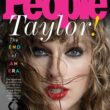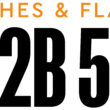We may well live to read “where-were-you-when…” obituaries for Time magazine and Rolling Stone. But this month, a stream of UK newspapers, magazines, broadcasters, Tweets and blogs lamented the death of a nine-year-old monthly magazine with a circulation of under 25,000. In a farewell blog, the magazine’s founder reflected on the trials of traditional media and said: “I wouldn’t be surprised to see any media enterprise… shut their doors tomorrow. I wouldn’t bat an eyelid”. London broadcaster Danny Baker tweeted: “Other than the BBC shutting down, I cannot think of lousier media news.” GQ editor Dylan Jones wrote of “an extraordinary magazine produced by a magnificent bunch of people, and one that will be much missed.”
Media folk are not supposed to be that sentimental about other people’s work.
The magazine closure that provoked such grief was The Word, which described itself as “the home of intelligent life on Planet Rock”. But this was no ordinary magazine any more than its creator, David Hepworth is an ordinary publisher. The Daily Telegraph was lyrical about the qualities of a magazine whose circulation never reached 50,000: “It was witty, funny, inventive. Unlike its rivals, it never lurched into purple prose or self-righteousness. It was thoughtful without being pompous. It welcomed you; it made you feel part of a small but loyal club. It didn’t hector, preach or sniff; it conspired with you. From the attention paid to detail, the ingeniousness that went into the headlines and captions, you could tell its creators loved their jobs. You couldn’t blame them. More than that, you envied them.”
The Word has been the product of a small, cheerfully struggling independent company founded by four former EMAP executives, Jerry Perkins, Mark Ellen, Andrew Harrison – and Hepworth. They have, quite simply, been producing a magazine they themselves wanted to read. Consequently, they built a loyal readership who felt like club members, fostered by breezy podcasts, and pub events.
The magazine was rooted in singer-songwriters and rock music but was open-minded in a way that reminded readers of cult British radio DJ John Peel. And for a bunch of middle-aged dads, The Word team were across the technology of iPod, iPad and Spotify as much as they were into nerdy percentage contributions to individual Beatles songs by John, Paul or George. As a reader in mourning, this writer is biased. However, it is easy to feel that The Word‘s level of reader-engagement and sheer belonging was the essence of great magazine publishing. But then it was the brainchild of a magazine genius.
David Hepworth was born in Dewsbury, a medieval Yorkshire wool town linked more recently with a serial killer known as the Yorkshire Ripper and London’s 7/7 terrorist bombers. He had stumbled south into the music business and then into magazines at the end of the 1960s. He joined the break-out pop fortnightly Smash Hits in 1979, the year after its sensational launch by Nick Logan (his former boss on the legendary music weekly NME). By 1981, Hepworth had become editor as the magazine raced to more than 1 million sales, helping to transform the fortunes of the then hardly-known publishing company EMAP.
Over the next 21 years, he was the creator, inspirer and cheer leader for an unrivalled fleet of magazines from the company’s shabby-chic Carnaby Street offices: Its pace-setting music magazines upstaged and robbed the long-established inky tabloid newspapers Melody Maker, Sounds and NME; and EMAP rapidly graduated from biting the ankles of the IPC magazines giant – to become the country’s fastest-growing and most innovative magazine publisher. Even Carnaby Street seemed dead right: for these young magazine nuts, the 1980s was the 1960s.
Neither the 1980s nor the 1990s were statistically any kind of peak for UK magazine publishing. That belonged to the 1970s when a clutch of long-in-the-tooth women’s weeklies each sold millions of copies on the back of life-long interest in recipes, knitting patterns, the monarchy, and Coronation Street. But the 1980s was a time of innovative magazines for a generation which wanted something different. The specialist magazine newsstand boom in the UK made it a golden period for the industry, for EMAP – and for the quietly-inspirational David Hepworth, three of whose magazines each achieved sales of about 1million. One former editor says: “Dave has a brilliant knack of getting to the heart of an issue and expressing it in a crisp, original and memorable way. I can still remember comments he made to me about the way readers look at magazines (they’re viewers first, Dave said, readers second).”
The high-flying EMAP was driven by the brilliant “odd couple” partnership of Robin Miller and David Arculus but powered by the genius of Hepworth and his sparky Emap Metro team whose profits propelled the longtime provincial newspaper publisher to corporate stardom.
For both Emap and Hepworth, Smash Hits was just the start of an amazing journey. The new magazines came thick and fast: Just Seventeen (1983) , Looks (1985), Q (1986), More (1988), Empire (1989), Big! (1990), Mojo (1993), Bliss (1995), Select (1995), Minx (1996), Neon (1997), Red (1998), Heat (1999) , and the acquired/ relaunched RAW (1989), Kerrang (1991), FHM (1994), and MixMag (1997). A few failed but most succeeded, some against all the odds: The young women’s gossip weekly Heat became the country’s most profitable magazine after reversing its failed launch strategy as a magazine for men.
Hepworth and his bright-eyed young team understood their readers and were reinventing magazines with new approaches to content, design and branding. EMAP became the darling of the stock market, and the company for which everyone in media wanted to work. Powering leadership of young magazines led to success in radio, music TV, events and business information. EMAP was on fire. And the creator of iconic magazines, was at risk of becoming an icon himself. Hepworth fronted the BBC’s “Old Grey Whistle Test” for a time, and memorably co-anchored Live Aid with Bob Geldof in 1985. More than anything else, though, he was happiest in the free-wheeling high-rolling magazine-centric EMAP. But not for much longer.
The golden EMAP story was cut short by two seemingly unconnected events in succeeding years: the 1997 resignation of David Arculus and, therefore, a classic breakup of the bumpy but brilliant partnership with Robin Miller; and the disastrous, hubristic $1bn US acquisition of Petersen magazines in 1998. The ultimate result was the breakup of EMAP. The once high-flying consumer magazines and radio stations were acquired in a madly-priced 2007 auction by German-owned Bauer. The B2B operations were also bought expensively, by private equity firm Apax and The Guardian.
David Hepworth watched the last rites of his former employer from the sidelines.
Half way through EMAP’s lingering, debt-laden post-Petersen demise, the disillusioned Hepworth and friends had left in 2002 to launch Development Hell Ltd with the financial backing of former bosses – including Arculus. The following year they launched The Word, a music magazine that also reflected Hepworth’s affection for football and pop culture. The magazine quickly attracted its hardcore fans but was subsequently hit by the sharp decline in music advertising. Guardian Media Group bought a 29% stake in the company. The charity-owned newspaper publisher was in its adventurous phase of investing in all kinds of media having made hundreds of millions from a canny investment in the digital-conquering Auto Trader.
It seemed like a perfect home for The Word – and for Hepworth who also provided insightful media commentary for The Guardian. But fast forward a few years and you have the grim spectre of The Guardian’s heavy trading losses and hundreds of millions wasted on seemingly adventurous investments in non-core businesses, including ironically EMAP’s former B2B operations. That meant The Guardian would no longer be interested in owning a yet larger slice of Development Hell.
These are churning times for magazines, not so much measurable by closures of loss making titles (most of which have yet to happen) but by sharply declining copy sales and advertising, with cover prices under almost as much pressure as advertising page rates. Hepworth is rueful: “Both readers and advertisers have got hundreds of choices and they use them, which is fine. I don’t yearn for the old days. I think the new, wide open media world is more interesting and fun than the old one.”
For a distinctly non-academic achiever, Hepworth’s career has always been punctuated by piercing observation of social trends. Such an insight was his characterisation of the “fifty-quid bloke” described in a speech to the quaintly-named British Phonographic Industry in the year of The Word launch: “This is the guy we’ve all seen in Borders or HMV on a Friday afternoon, possibly after a drink or two, tie slightly undone, buying two CDs, a DVD and maybe a book – fifty quid’s worth.” Hepworth’s imagery was as powerful as his references to ensuring that his teams aspired to be The Beatles (the originals) not The Monkees (the imitations).
The fact that Borders has closed and HMV is the walking dead makes it unnecessary to question the fate of the “50-quid bloke” for whom The Word was launched. Hepworth is also too modest to reflect on the irony that the first magazine he had actually owned was forced to bite the dust before many of those cannibalised by his hugely-profitable EMAP launches: big companies march to a different beat, even in decline.
Another former EMAP editor, says: “Unlike so many other editorial directors, David never got blinded by the sales figures; and he grumbled if you linked newsstand sales with editorial health too closely. He always realised that a good sale was down to many factors outside an editor’s control and that the reverse was also true. What I most respect about him – and the quality I most aspire to emulate – is that he works so bloody hard to make what he does look effortless.”
As a Tottenham Hotspur (Spurs) football fan, Hepworth might safely be identified with the 0ft-quoted words of the club’s most celebrated captain, the late Danny Blanchflower: “Football is about glory, it is about doing things in style and with a flourish, about going out and beating the other lot, not waiting for them to die of boredom.” That’s how it has seemed with Hepworth’s upbeat, stylish and practical approach to magazines.
But this magazine visionary recognises that the demise of The Word is symbolic of changing media times: “The speed with which this item of news spread and became a news event was a live demonstration of the same forces which mean you can’t publish magazines, or indeed anything, the way you once did. These changes have made it more difficult for a small independent magazine to survive and provide its staff with a living. This hasn’t been made any easier by the economic climate of the wider world.”
It is all so different to Hepworth’s new-venture optimism of 10 years ago: “Major publishers are doing fewer, bigger things and that’s why we think there are opportunities for magazines which will probably get by on smaller circulations for some time but actually grow into bigger things. I’ve had a lot of experience in the business and I have come to the conclusion that, if you have got a really good magazine, it will work.”
Closure of The Word was treated as significant news, partly because the magazine was created by David Hepworth, partly because it was read (and/or admired) by journalists, but mostly because it was a metaphor for the kind of relationship that a magazine can build with its readership – and which is now seen to be wrecked by changing media appetites.
The magazine’s closure, however, also symbolises the tragedy of a medium which has been largely dependant, for its profits, on advertising rather than on copy sales. Magazine sales have fallen, of course – none more so than the celebrity-stuffed weeklies which once accounted for 100% of UK magazine industry profits and have been shredded by Twitter. However, because cover prices of non-weekly magazines have seldom covered all the costs, it is of scant comfort to publishers that copy sales have not declined quite as sharply as advertising: without the ads, there is no profit.
Magazine-type engagement with readers will, of course, survive and thrive – albeit less in hard copy than digitally. But such magazines inevitably will comprise a smaller industry with perhaps only the largest (and mostly international) publishers able to exploit the real expansion opportunities in e-commerce and global advertising. With large magazine-centric companies everywhere still (how shall we put it?) slow to prepare for the future, it has taken the closure of one small UK magazine – created by the industry’s brightest star – to highlight the inevitable pain ahead for many others. Meanwhile, we Brits hope for a return of David Hepworth and “Whistle Test”.




Thank you Colin for sharing another well-written article with us. I must admit that you keep your readers interested and motivated to come back and read more of your blogs.
I find your blogs are quite informative and interesting.
You are a great researcher.
Please keep up the good work.
Kindest regards.
Very sad! But the EMAP of the 1980s & early 90s was certainly an exciting place to work!
Great post- I worked at EMAP for 10 years on most of the youth and women’s magazines. It was a great time. Dave Hepworth and Mark Ellen were editorial geniuses who also had commercial savvy
– a powerful combination for me working in the ad team. They taught me a lot about the power of magazines and the connection a reader feels for their favourite titles. I still work in magazines and count myself lucky that EMAP played a significant role in my career